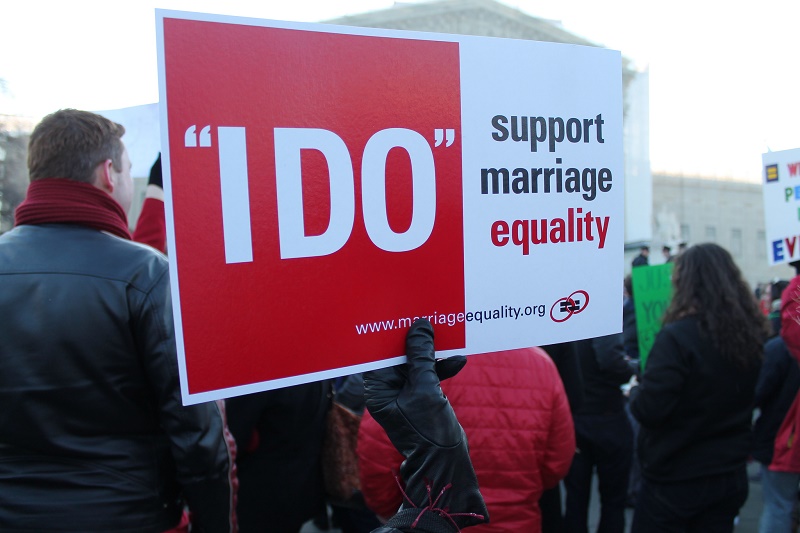Dissolution Of Domestic Partnership In California: Family Code 297-297.5

Are You Seeking To End Your Registered Domestic Partnership?
In 2005, the California State Legislature changed the laws regarding registered domestic partnerships so that they are treated similarly to marriages. However, there are still major differences between the two, and many of the issues involved in registered domestic partnerships have not been addressed before the family law courts. Due to the complexity and uncertainty surrounding a dissolution of domestic partnership, you should hire an experienced divorce attorney at Wallin & Klarich if you are involved in a dissolution of domestic partnership. Our skilled family law attorneys will explain to you the various difficult issues that are involved with domestic partnership dissolution and fight to protect your rights.
California Family Code Section 297.5 states, “Registered domestic partners shall have the same rights, protections, benefits, and shall be subject to the same responsibilities, obligations and duties…as are granted to and imposed upon spouses.” This means that, like with ending a marriage, there are three ways that you can end a registered domestic partnership: divorce, legal separation, and annulment. An experienced family law attorney can advise you as to whether a divorce, legal separation, or an annulment would benefit you most.
Residency Requirement for a Dissolution Of Domestic Partnership
One of the main differences between the legal process for ending a marriage or a registered domestic partnership is the residency requirements. When ending a marriage you or your spouse must have been a resident of California for at least six (6) months. With domestic partnerships, there is no residency requirement. Neither partner has to reside in California at the time of filing. As long as the domestic partnership was registered in California, you may file a petition to dissolve your domestic partnership in the family law courts.
Summary Dissolution Of Domestic Partnership

Like with ending a marriage, if you and your partner are seeking a quick and easy way to terminate your registered domestic partnership, you may be able to file a Petition for Summary Dissolution. In order to qualify for a summary dissolution of domestic partnership, you must meet the following requirements:
- You both want to terminate your domestic partnership;
- You have not been registered as a domestic partner for more than 5 years on the date that you file your Notice of Domestic Partnership Termination;
- There are no children, either born or adopted, of the relationship. This includes children born or adopted before or during the domestic partnership.;
- Neither partner is currently pregnant;
- You do not own any part of land or buildings;
- You do not rent or own any part of land or buildings, except for your current residence;
- If you have a one (1) year lease or option to buy the land or building that you are renting, then you will be disqualified from filing for a summary dissolution of domestic partnership.;
- You do not owe more than $6,000 for debts acquired during the domestic partnership. This does not include vehicle loans.;
- You have less than $38,000 worth of property acquired during the domestic partnership. This also does not include vehicle loans.;
- You do not have separate property worth more than $38,000. This also does not include vehicles.;
- Both partners agree that neither partner is seeking support from the other; AND
- Both partners have signed an agreement stating that all of your property has been divided, or that there is no property or debts to be divided.
The requirements for filing for a summary dissolution of domestic partnership are very stringent. Many registered domestic partners do not qualify for a summary dissolution of domestic partnership and will have to go through a difficult process similar to divorce proceedings. Thus, it is imperative that you seek the advice and representation of an experienced divorce lawyer to determine whether you qualify for a summary dissolution, so that you can avoid the difficult divorce process, if possible.
The Process of a Dissolution of Domestic Partnership
The process for dissolving a domestic partnership is similar to the divorce process. An initial Petition for Dissolution, Legal Separation, or Annulment, must be filed with the family law courts, and served on your partner. After the petition has been served, your partner will have thirty (30) days to file a response to your petition. Depending on the complexity of your case, you may have to attend several hearings, and even trial, to determine how to resolve issues of child custody, visitation, child support, spousal support, and division of the property and debts acquired during the domestic partnership. An experienced divorce attorney can guide you through the process to ensure the best outcome possible.
Child Custody And Support When Terminating A Domestic Partnership In California

Under California Family Code Section 297.5 child custody issues will be treated similarly to those in divorce cases. Court’s involved in a dissolution of domestic partnership case will always look to the best interest of the child standard when making child custody and visitation orders. Under California Family Code Section 3011, the court will consider the following in determining what is in the best interest of the child:
- The health, safety, and welfare of the child;
- Any history of domestic violence by either parent against the child, the other parent, or another close relative or cohabitant;
- The nature and amount of contact that the child has with both parents;
- The habitual or continued illegal abuse of alcohol, illegal drugs, or prescription drugs;
- The emotional relationship between both parents and the child;
- The duration and the adequacy of the child’s living arrangements; and
- The ability of each parent to care for the child.
Further under California Family Code Section 3040 the family law courts will always try to make orders that ensure “frequent and continuing contact” with both parents. Thus the courts strive to order joint legal and physical custody to the parents whenever possible.
When making child support orders in a dissolution of domestic partnership case, the courts will evaluate the same factors as in any other child support case. The courts will evaluate the following factors when making a child support order:
- The number of children the parents have together, either biological or adopted;
- The amount of time that each parent has custody and visitation with the child;
- The parents current income, or earning capacity;
- Health care costs;
- Educational costs;
- The amount of other legal obligations owed by each parent, such as child or spousal support from another relationship;
- Tax considerations; and
- Any other special or unique financial circumstances.
If you are seeking to dissolve a same-sex domestic partnership, it is important to note, that under California and Federal law, the courts are prohibited from discriminating against parents based on their sexual orientation. If you are experiencing any discrimination in the court system, it is essential that you seek out the counsel of an experienced family law attorney immediately.
Spousal Support After a Dissolution of Domestic Partnership
The process for determining spousal support payments in domestic partnership cases is similar to divorce cases; however the federal tax consequences are considerably different. Spousal support orders will be determined based upon the economic situations and needs of both partners. Courts have wide discretion in ordering spousal support and take many factors into consideration.
For federal tax purposes, the federal government does not recognize registered domestic partnerships. Thus, under federal law, registered domestic partnerships are treated differently than marriages for tax purposes. If a spousal support order is made as a result of a marriage, the spousal support payments are tax deductible. The IRS will not treat support payments made by domestic partners the same.
However, it is important to note that the United States Supreme Court recently declared the Defense of Marriage Act unconstitutional. This effectively made all marriages, whether opposite-sex or same-sex, recognized under federal law. Thus, all married spouses will be entitled to the federal tax benefits of marriage. At this time, it is unclear whether this ruling will be applied to registered domestic partnerships.
Speak To A Family Law Attorney At Wallin & Klarich Today

While domestic partnerships are treated similarly to marriages in California, there are several important differences. Thus, it is important that you hire an experienced family law attorney who has experience in handling a dissolution of domestic partnership. Wallin & Klarich has been handling domestic partnership and other family law cases for more than 30 years. You can rely on the experienced Wallin & Klarich divorce attorneys to fight to achieve the best possible outcome in your case.
With office locations in Los Angeles, Orange County, Riverside, San Bernardino, San Diego, Victorville, West Covina, Sherman Oaks, Torrance, and Ventura, there is a Wallin & Klarich family law attorney available wherever you happen to live. To speak with an experienced California divorce lawyer today, please call us at (888) 749-7428. We will be there when you call.
